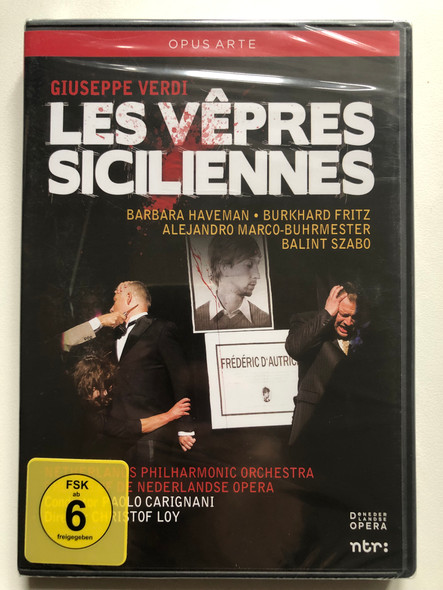Description
CAVALLI: LA DIDONE / Les Arts Florissants / Le Théâtre de Caen / Opus Arte
UPC: 809478010807
- Aspect Ratio : 16:9
- Product Dimensions : 7.52 x 5.31 x 0.59 inches; 3.2 Ounces
- Media Format : Multiple Formats, Classical, NTSC, Color, Widescreen
- Release date : September 25, 2012
- Actors : Les Arts Florissants
- Subtitles : English, German, French
- Studio : Opus Arte
- Country of Origin : USA
- Number of discs : 1
Summary
One of the first operas deserving of the name, Didone is our first surviving musical version of the famous episode in Virgil's Aeneid where the Trojan hero loves and then cruelly leaves the noble Dido. Cavalli learnt at the feet of Monteverdi, and his dramatic transformation of the story is all the more expressive for its intimacy, worthy of the examples set by his master. At the centre of this bold and simple staging - the first opera production by comic actor Clément Hervieu-Léger - is the Queen of Carthage herself, sung with uncompromising intensity by Anna Bonitatibus. William Christie and his singers and players show themselves entirely attuned to the world of Cavalli, where meaning and music fuse.
"Les Arts Florissants are on great form and sound glorious." (Opéra Magazine)
"William Christie's direction can almost be taken to guarantee a fine performance and that's the case here. We see him standing at the outset before quite a large orchestra, in front of a harpsichord. I don’t know how often he plays it, but there seems to be another keyboard in the continuo - it and the other continuo instruments can (just) be heard where it matters and that's a pleasant change from some modern recordings where the harpsichord might just as well not be there. " (Musicweb International)
"It's a fascinating piece...There are no weak links in the cast..." (BBC Music Magazine)
"With a small orchestra of solo strings, continuo and a couple of woodwind, the focus is very much on the declamatory skills of the singers. Anna Bonitatibus is outstanding, especially in her confrontation, impassioned but dignified, with Aeneas..." (Gramophone)


























